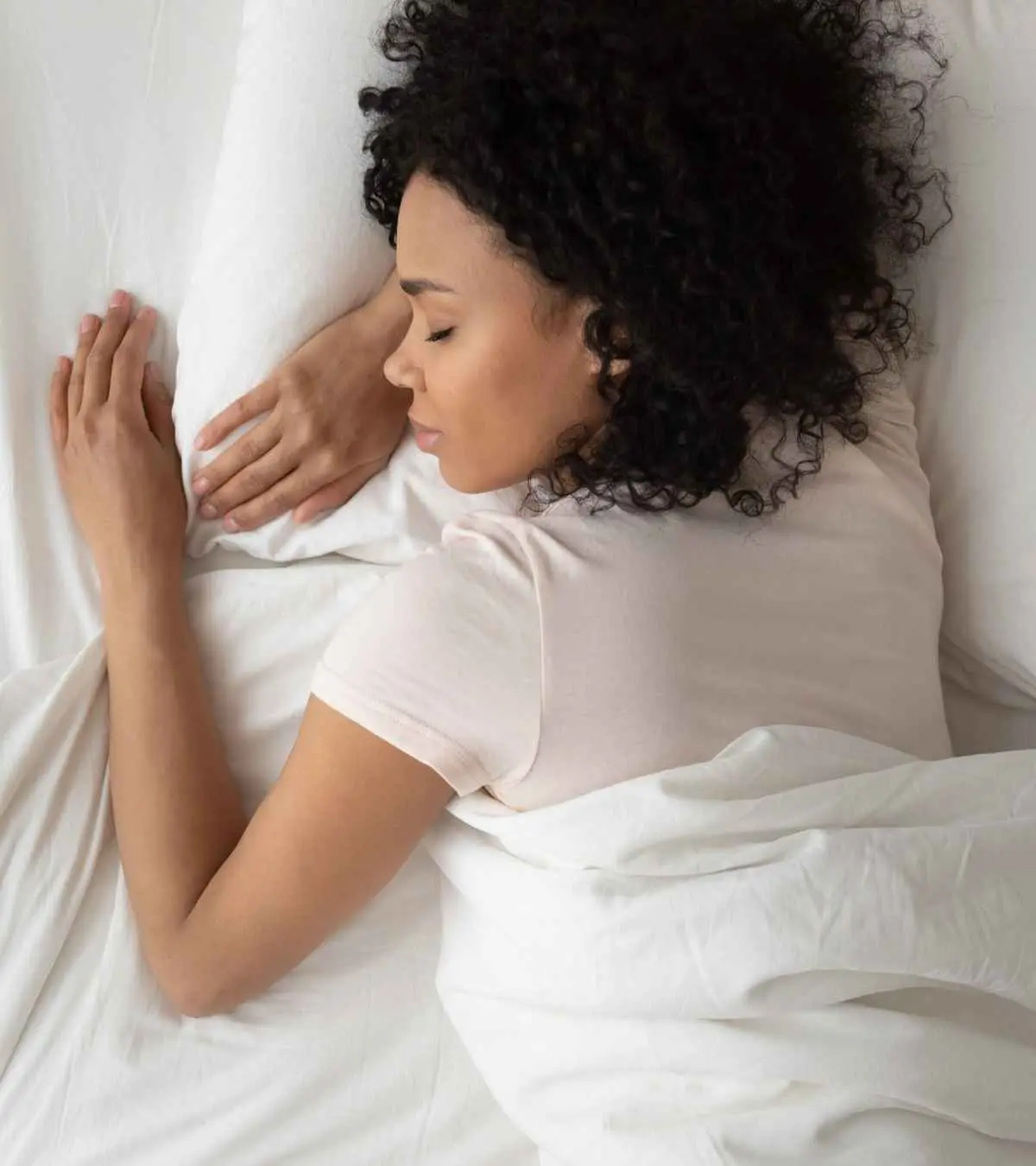Sleep Cycle Calculator: What Time to Go to Bed and Wake Up

Image: Shutterstock
This sleep calculator is designed to help you discover your ideal bedtime by optimizing your complete sleep cycles. Sleep is composed of 90-minute intervals that recur during the night (1). Rousing yourself at the end of a sleep cycle rather than in the midst of one can help you experience a more rejuvenated awakening. Therefore, employ this calculator to determine the time most suitable for you to retire to bed if you aspire to awaken feeling revitalized and alert. When you enter your preferred wake-up time in the formula, the calculator generates optimal bedtimes based on full sleep cycles, ensuring you wake up feeling refreshed and alert. But if you are still questioning the significance of obtaining the proper amount of sleep, assess just how detrimental your existing sleep habits might be!
If you want to know more about our natural sleep pattern, how much sleep people need at different ages, whether 6 hours of sleep is enough, and what are considered good sleeping habits – keep scrolling to find the answer.
In This Article
Results
To wake up at : you should go to bed at:
What are sleep cycles and stages of sleep?
Our brains undergo a series of sleep cycles while we sleep. The average person requires 5 to 6 cycles to wake up fully refreshed in the morning. Each sleep cycle spans approximately 90 minutes and encompasses five distinct stages. The initial four stages are non-REM stages that comprise light sleep stages in stages 1 and 2 and deep sleep stages in stages 3 and 4. These are followed by the final REM (rapid eye movement) sleep stage (1).
The duration of each stage fluctuates between 5 and 15 minutes. Deep sleep stages tend to be lengthier than REM sleep during the early part of the night, though this pattern reverses as the night advances. Typically, the brain transitions through stages of light sleep, deep sleep, REM, and then back to stages of light sleep and deep sleep, rather than moving linearly from stage 1 to stage 5 (1).
Light sleep stages (N1, N2) are characterized by muscle twitches and increased susceptibility to awakening. These stages mark the gradual preparation for deep sleep and are accompanied by a deceleration of brain wave activity (1).
Deep sleep stages (N3, previously subdivided into N3 and N4) are also referred to as delta sleep or slow wave sleep. Awakening someone during this stage is particularly challenging. Deep sleep is the most crucial phase for rejuvenation and significantly reduces the need for additional sleep. This is why prolonged daytime naps, which can lead to deep sleep, often result in reduced nighttime drowsiness. Additionally, growth hormones play a vital role in restoring the body and muscles during this phase (1).
The REM sleep stage (R) is where dreams occur. The brain exhibits wave patterns resembling wakefulness, with rapid eye movements while the eyes remain closed (1).
Frequently Asked Questions
How can I improve my sleep quality?
Create a relaxing nighttime ritual, stick to a regular sleep schedule, and keep your sleeping environment cool, dark, and quiet to enhance the quality of your sleep. Before going to bed, stay away from electronics, big meals, and caffeine. Instead, use relaxation methods like meditation or deep breathing to help you relax.
Is it OK to sleep 6 hours a night?
No. A minimum of 7 to 8 hours of sleep is generally recommended for healthy adults (2).
What is the 3-2-1 rule for sleep?
The 3-2-1 rule for sleep goes like this:
3 hours before bed: Finish eating food or drinking alcohol.
2 hours before bed: Finish your work.
1 hour before bed: Stop looking at screens, like mobile, TV, and tablets.
Is 5 hours of sleep enough?
No, 5 hours of sleep is considered very minimal and may impact one’s health negatively. A minimum of 7 to 8 hours of sleep is required for healthy adults (2). If you are struggling with issues like sleeplessness or insomnia, you can explore effective home remedies for insomnia to improve your sleep naturally. If the issue persists then consulting with a doctor is recommended.
Can sleeping too much cause heart problems?
Yes, sleeping for more than 8 hours may increase the risk of heart problems in adults (2).
What is the best time to sleep and wake up?
The best time to sleep (and wake up) differs from person to person and entirely depends on one’s schedule. However, it is recommended to sleep between 11 p.m. and 6 a.m. to ensure one gets adequate sleep.
Is sleep more important than exercise?
Although both sleep and exercise have their own benefits, sleep helps the body regenerate. Hence, adequate sleep is more important than exercise.
References
Articles on StyleCraze are backed by verified information from peer-reviewed and academic research papers, reputed organizations, research institutions, and medical associations to ensure accuracy and relevance. Read our editorial policy to learn more.
- Physiology of Sleep
https://www.ncbi.nlm.nih.gov/books/NBK482512/ - Recommended Amount of Sleep for a Healthy Adult: A Joint Consensus Statement of the American Academy of Sleep Medicine and Sleep Research Society
https://www.ncbi.nlm.nih.gov/pmc/articles/PMC4434546/
Read full bio of Dr. Benjamin Gibson
Read full bio of Sindhu Koganti
Read full bio of Arshiya Syeda
Read full bio of Himanshi Mahajan





Community Experiences
Join the conversation and become a part of our empowering community! Share your stories, experiences, and insights to connect with other beauty, lifestyle, and health enthusiasts.